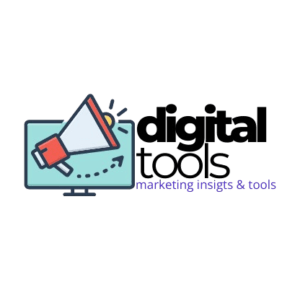Introduction
A strong SEO strategy begins with effective keyword research. It’s the foundation that determines how well your website ranks on search engines. However, traditional keyword research methods are time consuming and often miss valuable opportunities. Enter AI-driven keyword research tools, the game changers for modern SEO. These tools analyze massive amounts of data, uncover hidden opportunities, and provide actionable insights to refine your SEO strategy. In this blog, we’ll explore how AI can take your SEO efforts to the next level and help you stay competitive in the digital landscape.
Table of Contents
1. Why Keyword Research is a Significant Part of Your SEO Business Plan
Keyword research is not all about finding out the terms that people use when searching for some content. It allows you to understand what your target audience is looking for, enabling you to:

- Create Relevant Content: Engagement can be gained by using keywords that reflect the intent of the user.
- Attract Organic Traffic: Find out the keywords that can generate positive traffic to your site.
- Outperform Competitors: Find out the content weaknesses in coverage by your competitors.
- Optimize for Voice Search: Shift your attention on conversational keywords so as to fit voice search.
Namely, even if you create the most impressive materials, they won’t reach your audience if you don’t have a good keyword base.
2. How AI-Driven Tools can Impact the Keyword Research
Technological interventions like AI enabled applications are changing the ways marketers are approaching SEO by getting their hands on information that was otherwise very hard to gather. Here’s how these tools enhance your SEO strategy:
- Keyword Prediction: AI learns about its past search activity to understand potential future keywords.
- Competitor Analysis: AI tools track competitor actions and what keywords they target so you can find this information out easily.
- Search Intent Recognition: AI recognizes its user type, that is informational, transactional, etc., allowing content to meet expectations.
- Real-Time Data Analysis: Search engine trends and keyword results change often, so AI technologies monitor them for the best course of action.
This means that the mentioned advanced features help you make your SEO strategy more adaptive to current trends.
3. The best AI-powered keyword research tools: your ultimate SEO aid
Here are some tools that can make a big difference in your keyword research based on the power of AI. Here are some of the best:
1. Semrush
Carries out a detailed keyword research, as well as trends and frequent searches.
Influencers track keyword that has been used by competitors to identify the gaps that they can fill.
2. Ahrefs
Uses AI to analyzes hub topics and questions to create keywords.
Is involved in tracking keywords and notifies about changes in its positions.
3. Surfer SEO
They possess features of artificial intelligence and make suggestions on optimizing the content.
Gives keyword density to optimize the page for better position on search engine ranking page.
4. Clearscope
Utilizes AI functionality to look through the best-ranked webpages and suggest the thuật ngữ related terms.
Some assists in creating content that meets the search engine intent.
These tools will assist you in conducting this search and surpassing competitors in terms of results.

4. How to Place AI-Driven Keywords into Your SEO Strategy
The last thing to do after coming up with your list of keywords is to incorporate the list well. Here’s how to do it effectively:
- Content Creation: It is also important to incorporate your primary and related keywords into your content flow naturally on the website.
- Meta Titles and Descriptions: Meta titles and descriptions should also contain keywords which will increase the click through ratio of the site.
- Headings and Subheadings: Put keywords in headings (H1, H2) so that the search engine crawler understands that the website content is related to the keywords.
- Internal Linking: When creating internal links, anchor texts should be made as keyword specific for the purpose of site organization and for SEO.
It is safe to say that its incorporation of AI generated keywords will further enhance the ranks of site as well as serve the customers better.
5. How To Use AI in Voice Search Optimization
Thanks to voice assistants, such as Alexa and Google Assistant, optimizing your SEO approach for voice search is now essential. Advanced conversational AI keyword tools can do the job better by presenting more conversational phrases and the long-tail keywords used in voice searches.
- Use Natural Language: Special emphasis should be paid to the keywords imitating natural speech.
- Optimize for Questions: Since many of the voice queries are questions, ensure that your content has “how”, “what” and “why” angles.
- Local SEO: The most common sample of voice queries is often geo-intended, for instance, “Where Is the best coffee nearby?” Make sure all your business is correctly setup for local search terms.
These strategies will provide increased accessibility of your website to the users which utilize voice search.
6. Machine Learned Content and Keywords Prognosis
You can use a ChatGPT or Jasper to write content with optimized SEO by following the tips highlighted above. These tools operationalise key searched terms in a natural manner and ensure the created content is both relevant and engaging.
- SEO-Friendly Blog Posts: To start with, generate blog ideas and content based on the keywords into trends.
- Automated Meta Descriptions: How to write a meta description that will maximize clicks using AI.
- Content Refreshing: AI will also help to optimize older content by adding new, effective keywords into it.
The use of AI in content development can help you maintain quality and appropriate content throughout the site.

7. Managing Keywords and its Performance using AI
Keyword analysis proves valuable in improving your SEO campaigns because it involves monitoring the keyword performance. AI tools offer great insights into the extent of effectiveness of the input keywords.
- Keyword Ranking Reports: There is no better way to get an updated snapshot of the current keyword ranking and trend than by using this tool.
- CTR and Bounce Rate Analysis: The user behavior patterns should be analyzed so as to determine the necessary changes that may be made.
- Competitor Performance: Keep an eye on their ranks and make some necessary changes.
These insights let you make decisions based on facts and always improve your activities gradually.
8. SEO keyword research is one of the most frequent applications of AI in the SEO industry, and it has the following difficulties:
While AI-driven keyword research offers many benefits, it’s not without challenges:
- Over-Reliance on Automation: The disadvantage of a completely automated approach is that the actual goal of a business itself may be lost, as well as fine distinctions regarding search intent.
- Data Privacy Concerns: AI tool involving data usage involve handling of big data sets raising privacy concerns.
- Complexity of Tools: There are some AI applications available that can be highly difficult especially for a novice to learn.
These are the hurdles we need to conquer: First, determine the right ratio of artificial intelligence to human intellect; Second, adhere to data regulations.
9. Future Trend in Smart SEO technique
AI will keep playing its role in SEO in more innovative manners. Here are some trends to watch:
- Hyper-Personalization: Automatic intelligent search will make the search results even more sensitive to behavior and preferences of users.
- AI-Powered Search Engines: As AI becomes a critical component of search engine algorithms, the need to optimize for engines run by AI will rise as well.
- Image and Video Search Optimization: AI will help enhance the optimisation for multimedia objects like images and videos.
As you shall see below, failing to keep up with these trends shall compromise you in your SEO endeavours.

Conclusion
AI-driven keyword research tools are transforming how businesses develop their SEO strategy. From predicting emerging trends to optimizing for voice search and tracking keyword performance, AI empowers marketers to create more targeted, effective campaigns. However, while AI provides valuable insights, human expertise is still essential for understanding nuanced user intent and crafting engaging content.
To maximize your SEO strategy, integrate AI tools with manual efforts, stay updated on the latest trends, and continuously refine your approach based on performance insights. With the right balance, AI-driven keyword research will help your business achieve higher rankings, increased traffic, and sustained growth in the digital marketplace.


Add a Comment